The Gaumont - Oxford
Street
This NCP car parkon Oxford Street was once the site of the Gaumont Cinema.
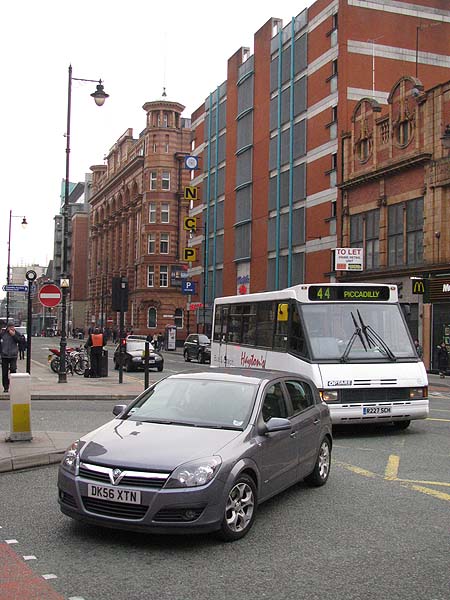
This NCP car parkon Oxford Street was once the site of the Gaumont Cinema.

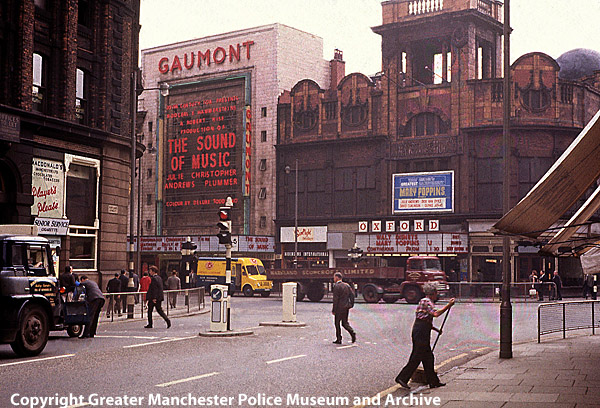
(The image above is shown with the
permission of the Greater Manchester Police Museum and
Archive. If
you click on this link you can see more historic
images from their Flickr
Photostream)
I must have visited the Gaumont on
more than one occasion but the one film that I remember
seeing there was Lawrence of Arabia. I
particularly remember the length of the queues in the
intermission as people sought drinks, "drinks on a
stick" and ice creams to quench their terrible
thirst. As the huge auditorium filled up, the
great Hammond Organ rose up out of the floor infront of
the screen to keep us entertained. This was in the
days when a full house meant an audience of more than
2000 people and the house was regularly full.
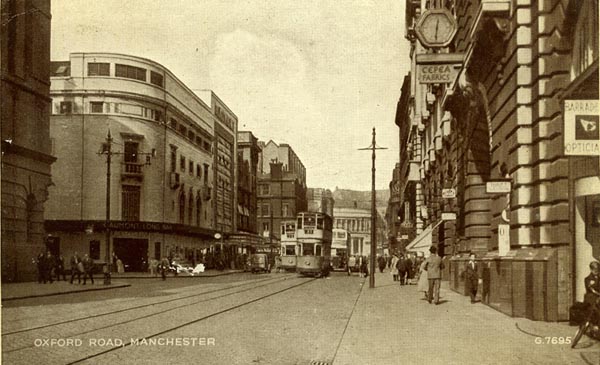

The cinema was designed by the architectural practice of William T. Benslyn and James Morrison. The "Cinema Treasures" website says that its exterior was "...in the Italian Renaissance style and clad in faiance tiles. The entrance portion was dominated by one of the largest neon displays in the city, the Gaumont name alone was four foot high, and below this there was a triple bordered panel which could take up to 12 rows of 18 inch letters in red neon announcing the attractions."
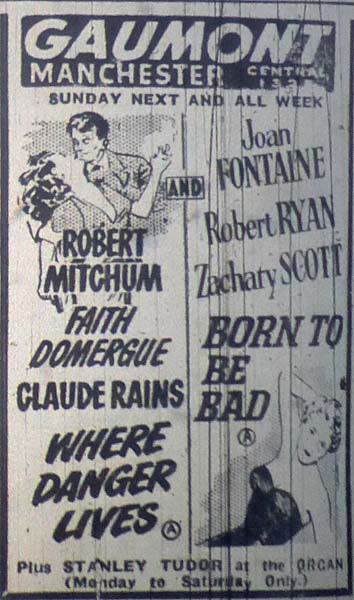
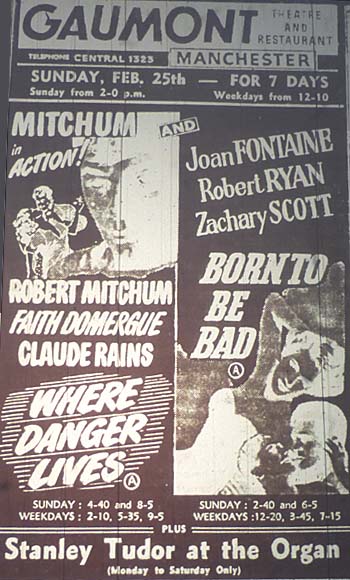
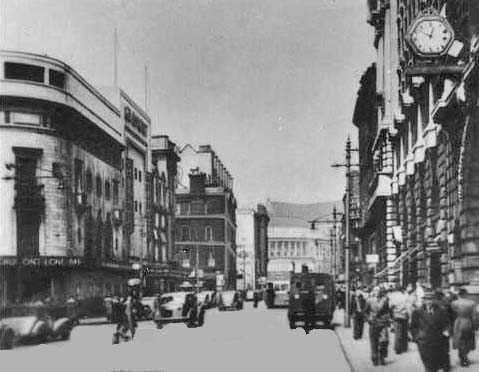
The Gaumont is seen
below (labeled D) in this RAF aerial photograph taken
in May of 1946.
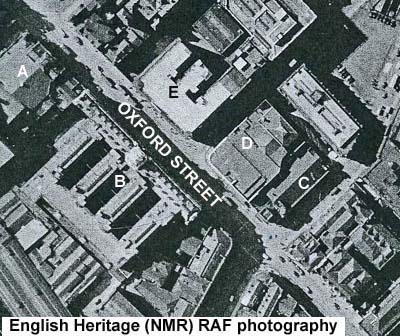
A - Palace Theatre B - St. James Building C - The Picture House
D - The Gaumont E - The Tootal Broadhust Building
It sat on the site of
the former Hippodrome Theatre (see below) which had been
demolished just 6 months before the completed Gaumont
opened in December of 1935.
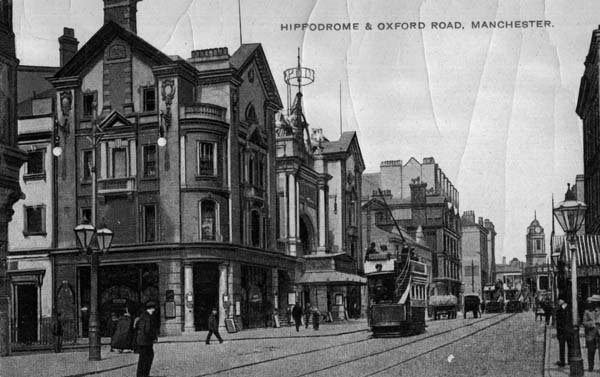
However, in 1973, the
Odeon (former Paramount Theatre) nearly opposite the
Gaumont, closed for twinning, reopening on the 25
January 1974 and less than one week later, on the 28
January, the Gaumont closed. It lay boarded up until the
Rotters
Nightclub opened in the ground and basement levels with
the circle area disused and with a false ceiling at the
balcony level. This too closed and in 1990, arguably the
finest cinema in Manchester was completely demolished.